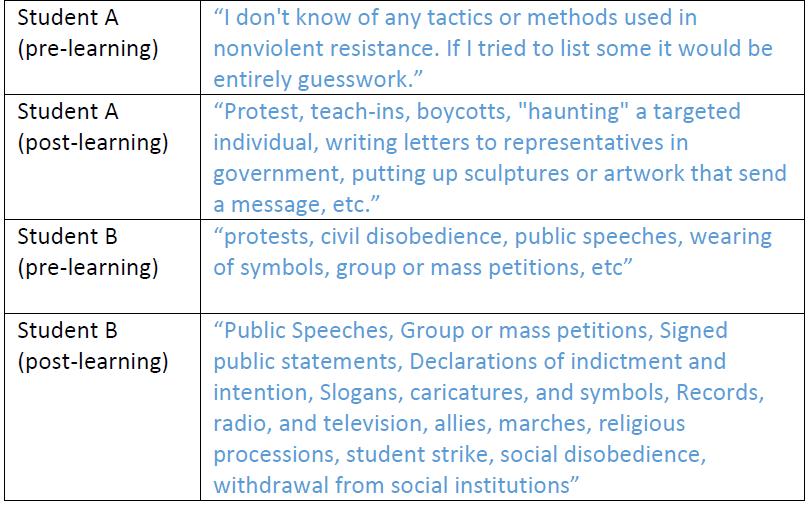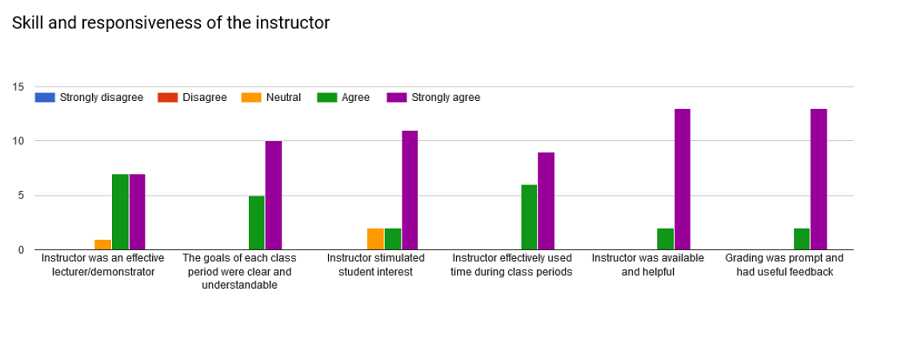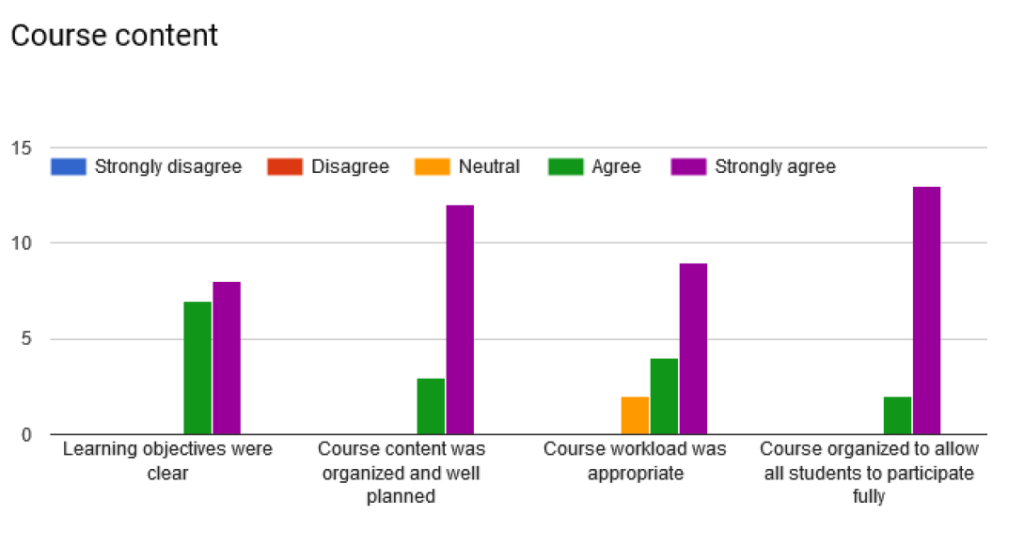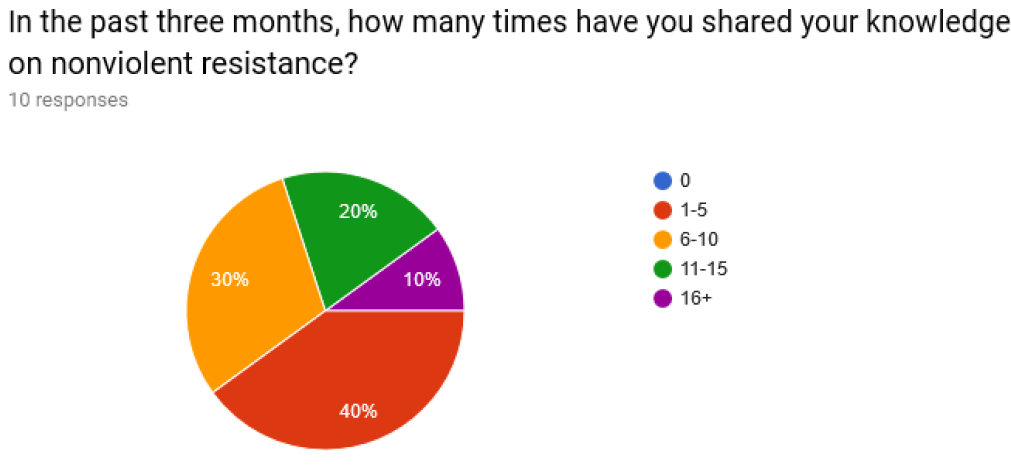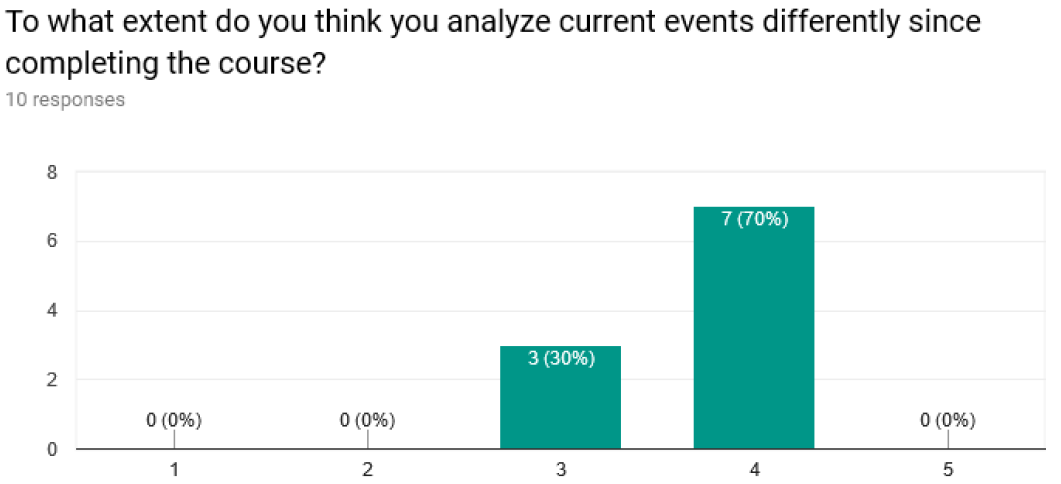Peace, Nonviolent Resistance, and Reconciliation: Taught by a 2017 Curriculum Fellow
Tyler Hauger, a 2017 ICNC Curriculum Fellow, developed, offered and moderated a classroom course, “Peace and Nonviolent Resistance” from January 3 to January 30, 2018 at St. Olaf College in Minnesota, USA. Twenty undergraduate students completed the course.
Olaf College in Minnesota, USA. Twenty undergraduate students completed the course.
The information featured below was submitted as part of the fellowship requirement for a classroom-based course. Those requirements asked for a detailed course proposal with clearly developed sections on civil resistance, assigned readings, assignments relevant to the subject matter and evaluation tools.
Learn more by using the menu on the left to navigate to each section of this page.
About the Curriculum Fellow
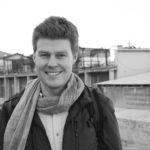 Tyler Dale Hauger was a visiting faculty member at St. Olaf College in Northfield, MN, USA, in January 2018. He works full-time as an advisor at the Karibu Foundation in Oslo, Norway, an organization that supports civil society movements in the Global South by lifting up alternatives to the dominant paradigms of power, distribution, and development. Tyler holds a M. Phil. in Peace and Conflict Studies from the University of Oslo (2011) as well as a B.A. in Political Science and Religion from St. Olaf College (2008). His interests and research areas include international relations, conflict resolution & reconciliation, economic globalization & trade regimes, social movements, nonviolent action strategies, and ecumenism & interfaith initiatives. Tyler previously served with the LWF’s Department for World Service’s Jerusalem office in East Jerusalem, and he currently sits on the board of the Norwegian Social Forum — the Norwegian arm of the World Social Forum.
Tyler Dale Hauger was a visiting faculty member at St. Olaf College in Northfield, MN, USA, in January 2018. He works full-time as an advisor at the Karibu Foundation in Oslo, Norway, an organization that supports civil society movements in the Global South by lifting up alternatives to the dominant paradigms of power, distribution, and development. Tyler holds a M. Phil. in Peace and Conflict Studies from the University of Oslo (2011) as well as a B.A. in Political Science and Religion from St. Olaf College (2008). His interests and research areas include international relations, conflict resolution & reconciliation, economic globalization & trade regimes, social movements, nonviolent action strategies, and ecumenism & interfaith initiatives. Tyler previously served with the LWF’s Department for World Service’s Jerusalem office in East Jerusalem, and he currently sits on the board of the Norwegian Social Forum — the Norwegian arm of the World Social Forum.
Course Title: Political Science 231: Peace and Nonviolent Resistance
Course Abstract
Course Abstract: The course will explore central theories and perspectives associated with peace, conflict reconciliation, and nonviolent resistance with perspectives from the Nordic countries and around the globe. What lessons can be learned from actors that are struggling nonviolently for individual and collective rights, social and economic justice, and a collective responsibility for coming generations? What key strategies are individuals and groups using in their struggle to create a just community and world? How do groups and individuals approach reconciliation and forgiveness in post-conflict situations?
The course will approach these subjects from an academic perspective, that of people’s movements in the field, and through interactive skill training that will occur each week. The civil resistance unit of the course will include a focus on political power, the strategic nature of civil resistance and peacebuilding, including looking at the pillars of support, broad-based coalition building, and potential allies, how one designs an effective civil resistance campaign that will also ensure a democratic result in the future beyond just regime change, and issues such as provocateurs, the radical flank/violent effect, as well as topics such as participation and backfire.
As a final project, students (in groups) will select one cause which they find personally engaging, and using both class material as well as outside sources, design a strategy for civil resistance and change. Both the theoretical premises and the mechanisms that link the explanatory factors to decisions on power and peace will be discussed in the course.
Learning Gains Survey Results
The Learning Gains Survey aims to measure knowledge gains among course participants. Participants take the Pre-Seminar Survey at the beginning of the course and take an identical survey (Post-Seminar) at the end of the course. Included below are the graphed responses to selected questions from the Pre-Seminar and Post-Seminar Surveys. The pre- and post-learning surveys were administered the day before the unit on civil resistance, and on the final day of the unit. 100% of the students (20 of 20) responded.
- One of the biggest learning gains was related to knowledge of the differences between tactics, campaigns, and strategies. Before the course, only 20% of the students felt that they had a good to very good grasp of this. Following the class, 100% of students responded that they had good to very good grasp. (1-Very low. 5-Very high)
- Similar trends of perceived gained knowledge was seen when asked about the extent that they could explain why some efforts failed. Before the class, about 40% of the students felt they had a good to very good grasp of this. By the end of the class, 85% felt they had a good to very good grasp. (1-Very low. 5-Very high)
- On a quantitative side, there were also noticeable changes. Here is a presentation of some of the responses (pre and post-learning) related to the question of naming any tactics they knew.
Overall, the students indicated that the course unit had positively contributed to their knowledge and understanding of civil resistance. Students were able to report a higher number of civil resistance tactics after the course and had a greater understanding of why movements succeed and fail.
Final Evaluation Results
75% of students (15 of 20) responded to the final evaluation for the course, providing generally positive to very positive feedback to the course and its instruction. Included below are graphed responses to selected questions from the Final Course Evaluation.
- The majority of course participants strongly agreed that the ICNC curriculum fellow was helpful and provided useful feedback. None of the course participants disagreed or strongly disagreed with the statements in the graph below.
- The majority of course participants strongly agreed that the course was well organized and that they were able to participate fully. None of the course participants disagreed or strongly disagreed with any of the statements in the below graph.
In terms of the positive elements of the course, the students indicated their appreciation for the interactive nature of the course, the variety of activities each day, the opportunity for small group reflections and activities, the participation of digital guests (from Chile, Norway and Iraq) who connected theory to practice, daily news reporting from around the world, and informal writings that allowed for reflection and feedback throughout the duration of the course.
Student Testimonials
- “The interviews and formal/informal talks organised by our course instructor with different peacemakers and peacebuilding activists from all over the world helped my learning and engagement with the course. The timing done by the instructor was perfect and efficient. Group projects during and out of class time were very helpful since we had opportunities and motivation to extra research that helped our learning and engagement with the course content. Frankly speaking, I loved this course and due to the course instructor it was extremely engaging, clearly organised, helpful, and interesting. I do not have any recommendations for the course instructor, since I am satisfied with the flow of the course and with its outcomes.”
- “Professor Hauger actually listened to our feedback and when we said we wanted more practice (because the theory could get heavy at times), he adjusted accordingly. I felt very heard and seen and respected by him in and out of the classroom.”
- “The entire course itself is useful because of the fact that we live in the 21st century and a lot of events are happening all over the world that we need to know for creating a better atmosphere, future and conditions for human beings to feel protected and peaceful. The fact that we covered different issues happening in the world was very useful in having an idea in what situation the entire world is. Sometimes it is hard to imagine what is happening somewhere far away from us on the earth, yet this course gave us many opportunities to know, investigate and examine those events that are not well known or hidden from the eyes of the society.”
Three month follow-up survey
A follow-up survey was sent to course participants three months after the course ended. This survey is intended to measure the long-term impact of the course. See below for selected graphs and quotes from the three month follow-up survey. 10 out of the 20 students (50%) in the course completed the survey.
- 60% of respondents stated that they were more interested in learning about civil resistance and 40% responded by saying that they were just as interested.
- All of the respondents had shared their civil resistance knowledge at least once. 40% of respondents had shared their knowledge on civil resistance between 1-5 times, 30% between 6-10 times, and 20% between 11-15 times.
- All of the respondents stated that they now analyze current events differently after taking this course on civil resistance.
1= Analyze current events the same as before I took the course. 5= Analyze current events very differently since taking the course.



